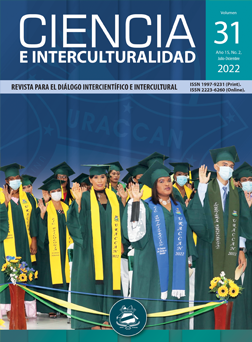Experiences on Open Government and Education, a comparative study: Mexico and Spain
DOI:
https://doi.org/10.5377/rci.v31i02.15179Keywords:
Education quality, culture, education, open governmentAbstract
The purpose of this study is to present the experiences on Open Government and Education in Mexico and Spain, countries that have been promoters of ideas to encourage transparency, collaboration, and accountability and have wanted to change the culture of public administration to promote quality education. Open Government has come to generate an innovative impact on the development policies of several countries that have joined the Open Government Partnership, which is immersed in government agendas that seek a change of culture to meet the Sustainable Development Goals (SDGs). The methodology is a qualitative documentary, descriptive level, supported by hermeneutics. A systematic review of scientific articles and reports of international organizations was carried out. Among the main theories, a brief overview of SDGs 4 and 16, culture and educational quality is presented. It is concluded that Mexico and Spain in their Action Plans submitted to the Open Government Partnership have reaped their rewards by using open data and allowing citizens to get involved, also the collaboration between governments and civil society is essential to ensure the mobilization of stakeholders and the implementation of participatory tools, such as social audits, and thus carry out comprehensive educational of transparent projects
Downloads
251
HTML (Español (España)) 53
EPUB (Español (España)) 109
XML (Español (España)) 128
resumen audio (Español (España)) 112
Abstract 116
Downloads
Published
How to Cite
Issue
Section
License

This work is licensed under a Creative Commons Attribution-NonCommercial-NoDerivatives 4.0 International License.
Copyright © (URACCAN)

This journal is licensed under a Creative Commons Attribution-NonCommercial-NoDerivatives 4.0 International License.
This license allows others to download the works and share them with others, as long as their authorship is acknowledged, but they can not be changed in any way nor can they be used commercially.




